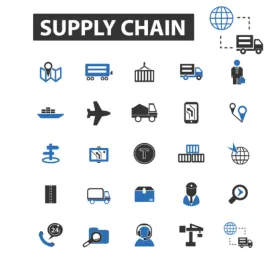The outbreak of coronavirus in China has made front page news across the globe in the past month and, while this epidemic has brought about health concerns for individuals around the world, industry concerns have arisen for those buying goods or component parts from the Chinese market. Specifically, when supply chains are interrupted and inventory is short, companies relying on goods supplied from China are wondering where to turn as they face production limitations or, in some cases, line shutdown, impacting downstream commerce. Where companies face these concerns brought about by supply shortages and remedies are required, companies must look first to the language of their supply agreements.
First, where a supply agreement contains a force majeure provision (or Act of God provision), the contract language itself may provide options and legal remedies when the production and sale of one's goods becomes commercially impractical or, in some cases, even impossible. Specifically, the invocation of such provision may permit adjustments to the contract's primary terms including: delivery; quantity terms; and, in rare situations, the agreed upon purchase price. These force majeure provisions allow contracting parties the opportunity to address supply disruption where unexpected circumstances prevent a party from performing. Should you find yourself in a position where supply is short and your contract contains a force majeure provision, it may be time for a supplier to provide notice to its buyer.
Even in the absence of a force majeure provision, legal protection may still be available that will excuse non-performance due to commercial impracticability. In this situation, the Uniform Commercial Code (UCC) protects a non-performing party from breach under UCC § 2-615. A party may seek baseline protections for the party's non-performance where "performance as agreed has been made impracticable by the occurrence of a contingency, the non-occurrence of which was a basic assumption on which the contract was made . . . ."[1] Put differently, a seller is excused where its performance is "commercially impracticable because of unforeseen supervening circumstances not within the contemplation of the parties at the time of contracting."[2] Notably, where a seller's ability to supply is only partially impacted, the seller must allocate production/supply among its customers in a fair and reasonable manner.[3] There remain additional factors that must be considered such as burden of proof, foreseeability, duration, etc., and increased costs alone may not be sufficient to meet the burden of proof.
Therefore, where a company is experiencing supply shortages due to the coronavirus's shutdown of commercial facilities in China, the coronavirus likely qualifies to excuse performance under either a supply contract's force majeure provision or under the UCC.
Should your company find itself in this position where it is difficult to maintain inventory levels or produce parts due to lack of supply from a Chinese supplier, it may be time to consider the invocation of force majeure protections under your supply contracts or under the UCC if such force majeure provisions are missing from your contracts.
[1] UCC § 2-615(a).
[2] UCC § 2-615, Official Comment 1.
[3] UCC § 2-615(b).





 />i
/>i

